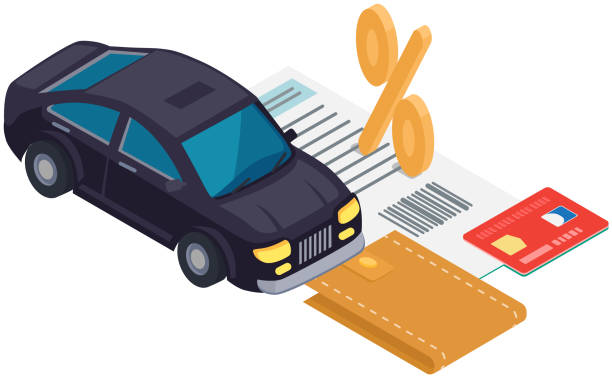For most of us, a night out at a restaurant follows a familiar pattern: you order what you fancy, enjoy the meal, and brace yourself for the bill at the end. Sometimes, that final figure brings an unwelcome surprise – extras you didn’t realise you agreed to, unclear service charges, or items added without your full knowledge. Now imagine applying that same scenario to something far more expensive and long-term than dinner: your car finance agreement.
Much like that unexpected dinner tab, some car finance deals come with hidden terms, unclear costs, and financial implications that only become obvious long after you’ve driven away. Whether you’re a first-time buyer or a seasoned driver, understanding the fine print of car finance is crucial if you want to avoid paying more than you should.
The Illusion of Affordability
On the surface, car finance agreements can look straightforward. You choose a car, spread the cost, and make monthly payments that seem manageable. Personal Contract Purchase (PCP) agreements are especially popular because they promise flexibility and lower monthly outgoings compared to other types of finance.
However, much like agreeing to “split the bill” without checking what everyone ordered, the reality can be more complicated. What initially appears affordable can become costly when you factor in balloon payments, interest charges, excess mileage penalties, and optional extras that may have been added without your full understanding.
Hidden Extras That Add Up
The problem isn’t just about cost. It’s about how that cost is presented. Many drivers find themselves facing unexpected fees or obligations simply because they weren’t clearly told about them up front.
Here are a few common elements in car finance agreements that can catch drivers off guard:
- Balloon Payments: A large lump sum due at the end of the agreement, often essential if you want to keep the car
- Undisclosed Commissions: Dealers may receive a commission for promoting specific finance options, potentially influencing the advice you receive
- Add-Ons: Items such as gap insurance or service plans might be bundled into the deal without you actively choosing them
- Early Termination Fees: Ending the contract early can result in penalties you weren’t warned about
- Mileage Restrictions: Breaching agreed mileage limits can trigger extra costs at the end of your contract
If any of these weren’t properly explained, you might have experienced what’s now widely recognised as mis-sold car finance.
How Mis-Selling Happens
Mis-selling doesn’t always involve outright dishonesty. Sometimes it’s about omission such as failing to explain a key detail or creating a sense of urgency that pressures the buyer into signing quickly. It can also happen when a buyer is given only one option rather than being allowed to compare multiple finance types.
In the case of PCP agreements, the complexity of the contract itself adds to the confusion. Many people believe they’re buying the car when, in fact, they’re essentially renting it until the balloon payment is made. The misunderstanding here can lead to a PCP refund claim if the buyer wasn’t given the full picture.
Why the Issue Has Grown
From 2007 to 2024, millions of car finance agreements were signed across the UK. During this time, regulations around commission disclosure and fair selling practices were not as robust as they are today. This has led to a significant rise in complaints, investigations, and formal claims being lodged by drivers who feel misled.
Just like checking the bill after a group meal and realising you’ve paid for dishes you didn’t eat, more drivers are going back to review their contracts and some are finding unpleasant surprises hidden in the details.
PCP Refund: A Wake-Up Call
A PCP refund might be available if it’s proven that you were mis-sold your car finance agreement. That could involve the repayment of interest, removal of added fees, or adjustments to your existing balance.
The right to challenge a finance agreement is based on consumer protection laws, and is not limited by income, credit score, or car type. You don’t need to have finished paying off the agreement to take action. If it was signed between 2007 and 2024, it’s worth reviewing the paperwork especially if something about the deal never felt quite right.
Learning to Ask the Right Questions
Just as you would check the menu for hidden costs or ask about the service charge, you should approach car finance with a similar mindset. It’s your money and your long-term financial wellbeing at stake.
Key questions to ask before signing include:
- What are all the fees included in this deal?
- Is there a balloon payment, and if so, how much is it?
- Does the dealer earn commission from the finance provider?
- Are any extras like insurance or maintenance included?
- What happens if I need to return the car early?
By asking these questions, you put yourself in a better position to make an informed choice and avoid future regret.
Final Thoughts: Small Details, Big Impact
Just as a seemingly minor dinner tab can balloon into a far larger bill with service charges and extra orders, car finance agreements can quietly become more expensive than expected particularly when vital details are hidden or glossed over.
The good news is that more consumers are waking up to their rights. If you’ve entered a deal that wasn’t properly explained or if you’ve noticed unclear charges, you may have been affected by mis-sold car finance. Reviewing your agreement and seeking expert advice could help uncover opportunities for redress.
Ultimately, both dining out and car buying should leave you feeling satisfied, not taken advantage of. The difference lies in asking questions early, knowing your rights, and not being afraid to challenge anything that doesn’t feel right. After all, when it comes to money, transparency isn’t a bonus but also a necessity.


